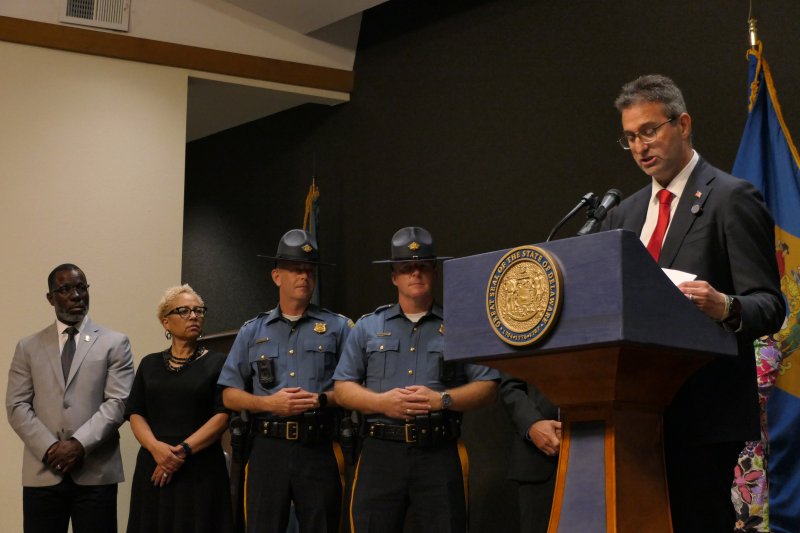Law prevents enforcement agencies in Delaware from sharing data with ICE
Gov. Matt Meyer signed a bill into law July 14 that prevents state and local law enforcement agencies from sharing data with federal immigration authorities, along with three other bills he said are designed to protect vulnerable communities.
“Every Delawarean has the fundamental right to live in a secure, respectful and inclusive community,” Meyer said in a press release following the signing event. “That’s why we’re taking meaningful steps to address outdated laws and private‑enforcement loopholes. These reforms are about recommitting to being a state of neighbors and working toward better, safer communities for Delaware residents.”
Now law, House Bill 182 bans Delaware law enforcement agencies from entering into 287(g) or other data-sharing agreements with federal immigration authorities. Officials said, “State and local law enforcement are not trained to enforce federal immigration laws, and entering into such agreements takes resources away from essential public safety duties.”
Collaborations on other public safety matters, however, remain permitted under the law.
The bill was co-sponsored by Sen. Russ Huxtable, D-Lewes, and Rep. Claire Snyder-Hall, D-Rehoboth Beach.
“Delaware is privileged to have some of the best law enforcement in the country – as AG, I know that for a fact,” said Attorney General Kathy Jennings in a press release. “These bills solidify the sacred bond of protection that law enforcement has with the people it is sworn to serve – ensuring that everyone, no matter where they are born, feels safe calling police, and ensuring that the men and women who dedicate their lives to protecting Delawareans’ safety can do just that.”
Also signed into law were bills that outlaw citizen arrests and warrantless arrests. HB 142 removes the authority for private individuals to execute warrantless arrests in Delaware when the accused is charged with a felony in another state. Officials said it also eliminates an obsolete provision allowing officers to command assistance from private persons for out‑of‑state arrests. HB 153, co-sponsored by Snyder-Hall, abolishes the citizen’s arrest, prohibiting individuals without explicit statutory authority – such as private detectives – from making arrests or detaining others. This effectively reinforces the exclusive authority of sworn law enforcement.
A Department of Justice spokesperson said the department could not say how many citizen’s arrests or warrantless arrests had been made in 2024 and so far in 2025.
“Unfortunately, we do not have the means to provide that data,” the department replied to an email. “In practice, a citizen’s arrest would be handed over to an actual police agency, which would then be recorded as the arresting agency in any DOJ record of the case. The case record would be indistinguishable from any other.”
Lt. India Sturgis, spokeswoman for the Delaware State Police, said citizen’s arrest “hasn’t really been a common practice here.”
HB 152, sponsored in part by Huxtable and Snyder-Hall, expands the state's impersonation statute to criminalize impersonating a federal officer. Current law prohibits impersonation of state and local law enforcement, firefighters and EMTs. The bill clarifies the definition of law enforcement official to ensure federal agents are covered.
Melissa Steele is a staff writer covering the state Legislature, government and police. Her newspaper career spans more than 30 years and includes working for the Delaware State News, Burlington County Times, The News Journal, Dover Post and Milford Beacon before coming to the Cape Gazette in 2012. Her work has received numerous awards, most notably a Pulitzer Prize-adjudicated investigative piece, and a runner-up for the MDDC James S. Keat Freedom of Information Award.
















































